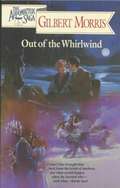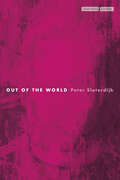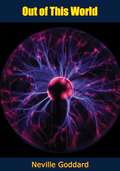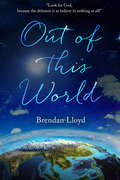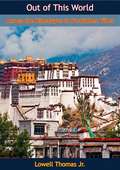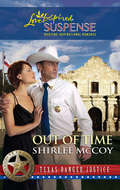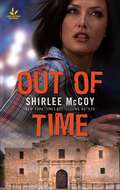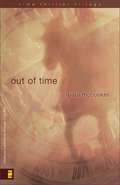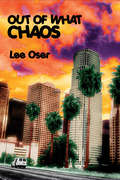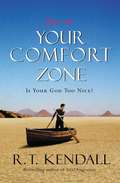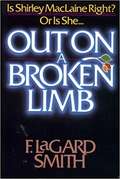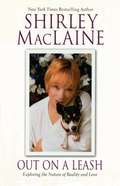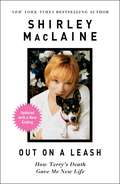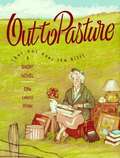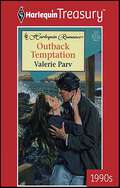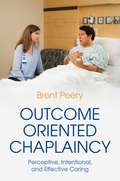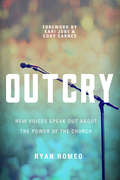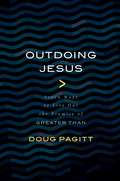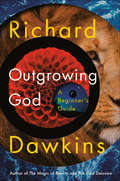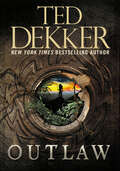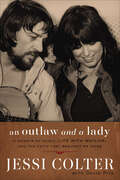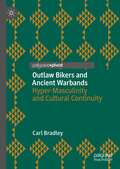- Table View
- List View
Out of the Whirlwind (Appomattox Saga #5)
by Gilbert MorrisA powerful blend of historical accuracy, romance, and spiritual journeys set during the time of the American Civil War. A young Quaker woman travels to Washington from Pennsylvania to help nurse the wounded soldiers and falls in love with an army engineer who has lost his memory.
Out of the World (Cultural Memory in the Present)
by Peter SloterdijkIn this essential early work, the preeminent European philosopher Peter Sloterdijk offers a cross-cultural and transdisciplinary meditation on humanity's tendency to refuse the world. Developing the first seeds of his anthropotechnics, Sloterdijk theorizes consciousness as a medium, tuned and retuned over the course of technological and social history. His subject here is the "world-alien" (Weltfremdheit) in man that was formerly institutionalized in religions, but is increasingly dealt with in modern times through practices of psychotherapy. Originally written in 1993, this almost clairvoyant work examines how humans seek escape from the world in cross-cultural and historical context, up to the mania and world-escapism of our cybernetic network culture. Chapters delve into artificial habitats and forms of intoxication, from early Christian desert monks to pharmaco-theology through psychedelics. In classic form, Sloterdijk recalibrates and reinvents concepts from the ancient Greeks to Heidegger to develop an astonishingly contemporary philosophical anthropology.
Out of This World: Thinking Fourth-dimensionally
by Neville GoddardFirst published in 1949, this spiritual classic by Neville Goddard captures the same intensity of thought and conviction which made Goddard famous amongst progressive thinkers.In this volume we see not only a profound religious feeling, but also a sense of the dignity and responsibility of human life. Our own feeling about the results of his experiments as a whole is that they are not just an addition to our existing knowledge, but require a revolution in our whole way of thinking about the world.A wonderful read!
Out Of This World
by Brendan LloydHave you ever considered spirituality but decided you couldn't make sense of all the jargon? You're not alone. Why settle for 'New Age' when you don't understand the Age-Old?In this book, you'll discover real experiences and real insight - nothing fictional, or second-hand (except maybe this book one day). If you don't think (even slightly) differently after reading this book, either you're not thinking enough, or you didn't stop and think 'Why are we here?'To quote the original Matrix film, 'Free your mind'; discover possibilities you thought were impossible, when you already knew the Mission was Impossible. But this one doesn't come with popcorn!I'm not here to tell you to 'look within', or that 'the Kingdom of God is within', I'm here to tell you - look for God, because the delusion is to believe in nothing at all!
Out of This World: Across the Himalayas to Forbidden Tibet
by Lowell Thomas Jr.In 1949, renowned travel writer Lowell Thomas, Jr., along with his father, the American writer and broadcaster best known as the man who made Lawrence of Arabia famous, was invited by the Tibetan government to make a film there, in the hope that their reports would help persuade the U.S. government to defend Tibet against the Chinese. The trip lasted 400 days, and the father-and-son team were the last Westerners to reach Lhasa before the Chinese invasion and occupation.The trek garnered worldwide attention when Lowell Thomas, Jr. succeeded in getting his father safely across the Himalayas to India after a serious accident on a 17,000-foot pass.Out of This World, which was first published in 1950 and became a bestseller, tells the story of this journey that the author describes as “a climax to his father’s lifetime of adventure” and “probably the greatest travel adventure I will ever have”.A thoroughly gripping autobiography.
Out of Time
by Shirlee MccoySomeone plans to disrupt the 175th anniversary celebration of the Battle of the Alamo-and it's Alamo Ranger Susannah Jorgenson's job to stop the culprit. But that means partnering with Levi McDonall, who skipped town years ago with her heart. Levi's now a Texas Ranger, sworn to protect her at any cost, but Susannah knows she'll pay the price if she falls for him again. She has to stay focused on their goals-to eliminate the threat and solve the murder of Levi's captain. But an unknown killer is watching...ready to eliminate them.
Out of Time (Texas Ranger Justice #6)
by Shirlee McCoyAn Alamo Ranger must trust the lawman who broke her heart in the finale of the New York Times–bestselling author’s Western romantic suspense series.Someone plans to disrupt the 175th anniversary celebration of the Battle of the Alamo—and it’s Alamo Ranger Susannah Jorgenson’s job to stop the culprit. But that means partnering with Levi McDonall, who broke her heart when he skipped town years ago.Now a Texas Ranger, Levi is sworn to protect Susannah at any cost. But she knows she be the one to pay the price if she falls for him again. She has to stay focused on their goals—to eliminate the threat and solve the murder of Levi’s captain. But an unknown killer is watching . . . ready to eliminate them.
Out of Time
by Paul MccuskerA long history of strange disappearances and unexplainable occurrences leave clues that the town of Fawlt Line may actually sit on a time fault—a portal to alternate times and unexpected time travels—a twist of fate that puts all of Fawlt Line’s citizens in serious danger. Will they find the faith to hold on to the town and time where they belong? On a foggy night, Jeff and Elizabeth see a car heading through the mist. A man on horseback is in the middle of the road, and a collision was barely avoidable. Now the victim—a giant of a man—lies on a hospital bed, surrounded by hospital staff and a host of questions. Has King Arthur really slipped through a time crack into Fawlt Line? Impossible? Perhaps. But lately in the town of Fawlt Line, the impossible has had a way of proving true. And the most incredible events are yet to come.
Out of What Chaos
by Lee OserAn Oregon musician pursues his dreams but eventually must choose between his celebrity lifestyle and the woman he loves.Set on the West Coast during George W. Bush’s first term, Out of What Chaos showcases the escapades of Rex and The Brains as they settle into the Portland rock scene, record their first album, and tour from Vancouver to LA behind their chart-topping single, “F U. I Just Want To Get My Rocks Off.”The boys party on, finding their way amidst the frenzied panorama of twenty-first century America. The country embraces them in all its crazy glory, from witches to priests, from groupies to politicians, from drug dealers to porno stars and college professors. As the band’s fame grows, tragedy strikes, and Freddie finds himself torn between his rock-and-roll lifestyle and his girlfriend whose claim on his heart continues to grow. In the end, the worlds of love and celebrity collide, and Freddie must make a choice.“What one would expect if Walker Percy wrote about a cynical rock musician who converts to Catholicism, and then Nabokov added some of his verbal pyrotechnics, and then Buster Keaton and the Marquis de Sade and Lionel Trilling inserted a few extra passages. It is a loving and yet appalled description of the underground music scene in the Pacific Northwest. And it is a convincing representation of someone very, very smart.” —Matt Greenfield, The Valve“In smart, wiry prose, Lee Oser has created a witty Bildungsroman set in the world of rockers in the Northwest. In a world where the “choices” offered are life-denying or trivial, Oser negotiates a set of alternatives for his characters-and his readers.” —James Najarian, Associate Professor, Boston College"Well-versed in the lifestyle, Lee Oser has crafted a hedonistically spiritual rock ‘n’ roll morality play; one filled with characters culled from his own musical experience. Freddie Fontane is the new Holden Caulfield for the wi-fi generation—registering his every thought and impression upon the quickly turned page. In a world of transient American Idols, in relentless pursuit of their Warholian fifteen minutes, Freddie Fontane is the unfailing pragmatist, searching for truth in a world of pretense and artifice.” —S. P. Clarke, Two Louies
Out of Your Comfort Zone
by R. T. KendallWhat is so wrong with being nice? Nothing. But the God of the Bible is not nice. This book will bring us back to the God of the Bible. Not the God we like or the way we wish He were. But the very God of the Bible-unembellished, unvarnished-as He really is. This does not mean we will like Him.
Out On a Broken Limb
by F. Hopkinson SmithDr. F. LaGard Smith uses his logic and philosophy to critically examine Shirley MacLaine's Easternized claims about the Bible.
Out on a Leash
by Shirley MaclaineFrom the internationally bestselling author and beloved actress comes a brilliantly fun-loving and inspiring story of unconditional love. Shirley MacLaine has found a perfect love in the furry bundle of irresistible canine charms that is Terry. With her winning terrier ways and an endless wellspring of love with no strings attached, Terry has succeeded in doing what no one before her ever has: slowing Shirley's peripatetic travels, shifting the actress/author's global axis to hearth and home. Now there are few greater pleasures for Shirley than being with Terry on her ranch or on a New York street, romping on the beach together, or sharing a long plane ride to a new location for making a film. With Terry by her side, Shirley sees the world in new ways she never thought possible. As we join Shirley and Terry we see through their eyes how they each provide a window for exploring the nature of love. Together they shared at least one past life in ancient Egypt, and possibly more. Together, too, they seek to understand world events today: Are we beginning to fulfill the ancient biblical prophecies? Is Armageddon looming? And of course there is Terry as a constant gateway to spirit, to being fully in each moment, to that boundless love that surpasses all understanding. In a unique twist that makes this book such a delight, we see Terry's point of view on Shirley's domestic and inner life, as the terrier's mistress continually questions the deeper nature of reality. This book is an utterly charming, witty, and ultimately wise memoir of one of the truly remarkable women of our time. Out on a Leash is an irresistible bonbon for the legions of MacLaine readers, and for dog lovers everywhere.
Out on a Leash: How Terry's Death Gave Me New Life
by Shirley MaclaineFrom internationally bestselling author, beloved actress, and “one-of-a-kind wit” (Vanity Fair) Shirley MacLaine comes a brilliant, fun-loving, and inspiring story of unconditional love.Shirley MacLaine found perfect love—in the furry bundle of irresistible canine charms that was Terry. With her winning terrier ways and an endless wellspring of absolute love, Terry succeeded in doing what no one before her ever had: slowing Shirley’s nomadic lifestyle and leading her home. Some of Shirley’s greatest pleasures included being with Terry on her New Mexico ranch or on a New York street, romping on the beach together, or sharing a long plane ride to a new location for making a film. With Terry by her side, Shirley was able to see the world in new ways she never thought possible. In this utterly charming book, told in both Shirley and Terry’s voices, Shirley explores how her beloved Terry provided a window for exploring the true nature of love and how to truly and fully live in the moment. Updated with a brand new ending, the book relates in deeply moving language Terry’s last days, and the joy Shirley felt when her bond with Terry proved unbreakable and Terry contacts her from the other side. A unique, witty, and ultimately wise memoir by one of the truly remarkable women of our time, Out on a Leash is the perfect gift for dog lovers and spiritual seekers everywhere.
Out on a Limb: Selected Writing, 1989–2021
by Andrew SullivanAndrew Sullivan—youngest ever editor of The New Republic, founding editor of The Daily Dish, hailed as &“one of the most influential journalists of the last three decades&” by The New York Times—presents a collection of his most iconic and powerful essays of social and political commentary from The New Republic, The Atlantic, The New York Times Magazine, New York magazine, and more.Over the course of his career, Andrew Sullivan has never shied away from staking out bold positions on social and political issues. A fiercely independent conservative, in 1989 he wrote the first national cover story in favor of marriage equality, and then an essay, &“The Politics of Homosexuality,&” in The New Republic in 1993, an article called the most consequential of the decade in the gay rights movement. A pioneer of online journalism, he started blogging in 2000 and helped define the new medium with his blog, The Daily Dish. In 2007, he was one of the first political writers to champion the presidential campaign of Barack Obama, and his cover story for The Atlantic, &“Why Obama Matters,&” was seen as a milestone in that campaign&’s messaging. In the past five years, he has proved a vocal foe both of Donald Trump and of wokeness on the left. Loved and loathed by both left and right, Sullivan is in a tribe of one. Bold, timely, and thought-provoking, this collection of Sullivan&’s greatest arguments on culture, politics, religion, and philosophy demonstrates why he continues to be ranked among the most intriguing and salient figures in US media.
Out to Pasture: But Not over the Hill
by Effie Leland WilderThis charming novel stars Hattie McNair, an inveterate journal-keeper and eavesdropper extraordinaire. Hattie's humor and indomitable spirit make Out to Pasture an amusing and heartwarming look at the often-avoided topic of aging. Hattie lives in FairAcres Home, a retirement community in South Carolina. Over dinner one night, Hattie overhears a fellow resident planning her own funeral-- complete with a caterer so her daughter-in-law's potted meat pate doesn't make the funeral goers sorry they came! Hattie begins her journal the same evening to capture the whole absurd scene--and so begins the story of Hattie's experiences "out to pasture."
Out with the In Crowd (Jennifer #10)
by Jane Sorenson[from the back cover] "I've never felt so alone in all my life. "Lord," I prayed, "please help me find a way out of this mess!" How did Jennifer end up at an unchaperoned beer party with a bunch of girls she really doesn't know, and boys who've already been drinking? And now, how is she going to get out of this situation?
Outback Temptation
by Valerie ParvWild at heart?"Don't even think about running away. We have an agreement and I intend to hold you to it."Stuck in the Australian outback, Jill knew that Bryan McKinley intended that she should pay for her mistake-in full! But how could she refuse him? If only for her brother's sake, she would have to go along with Bryan's plans and hope that she could keep her feelings for him strictly under control! After all, what other choice was there when he was already committed to someone else?
Outcome Oriented Chaplaincy: Perceptive, Intentional, and Effective Caring
by Brent PeeryOutcome Oriented Chaplaincy (OOC) is a method of chaplaincy care that emphasizes achieving, describing, measuring, and improving the outcomes that result from a chaplain's work, alongside the parallel framework of evidence-based healthcare. This book examines the underlying principles of OOC and incorporates first-hand accounts of chaplains who have made a measured difference to patients and their families. Brent Peery draws on more than fifteen years of experience within the field of Outcome Oriented Chaplaincy, exploring its evolution and history within the complex culture of healthcare, and how its underlying principles of assessments, interventions, outcomes and documentation are most effectively put into practice. This practical guide will benefit chaplains interested in the approach of OOC, and identify a framework for providing the best spiritual care for those facing life's most difficult moments.
OUTCRY: New Voices Speak Out about the Power of the Church
by Ryan RomeoThe OUTCRY tours were born out of a desire to be the lights and sounds of the greatest movement in the world - the local church. While studies and critics may indicate a decline of the local church, Ryan Romeo's OUTCRY attests that the movement is only increasing. It's time we band together to empower the local church to influence the surrounding culture. It's you. It's us. Stand behind the church Jesus gave His life for. The part you play in your local church matters. You are an integral part of bringing God's story to all corners of the world. God's church isn't finished! Her best days are ahead. With Contributions from: Shane Quick (OUTCRY) David Crowder Jenn Johnson (Bethel Music) Chris Quilala (Jesus Culture) Pat Barrett (Housefires) Chris Llewellyn (Rend Collective)
Outdoing Jesus: Seven Ways to Live Out the Promise of "Greater Than"
by Doug PagittIs it sacrilegious to claim that ordinary people can do greater works than Jesus?&“Very truly I tell you, whoever believes in me will do the works I have been doing, and they will do even greater things than these&” (John 14:12). Taking these words of Jesus seriously, Outdoing Jesus shows how the seven actions of Jesus that the Gospel of John singles out as special &“signs&” challenge us to live into a greater future. When Jesus asserts that his followers &“will do even greater things than these,&” he is calling for us to extend his miracles for the benefit of all of humanity. Only a master teacher wants students to do greater than their master!Doug Pagitt uses the works and teachings of Jesus as lenses through which we see what the kingdom of God would look like if it were &“at hand.&” We see how developments in humanities, medicine, science, technology, philanthropy, structural design, and social justice are bringing about the agenda of God for the world; and how we can participate. Outdoing Jesus is not only insightful biblical theology but a robust call to dare great things in pursuit of human flourishing.
Outdoing Jesus: Seven Ways to Live Out the Promise of "Greater Than"
by Doug PagittIs it sacrilegious to claim that ordinary people can do greater works than Jesus?“Very truly I tell you, whoever believes in me will do the works I have been doing, and they will do even greater things than these” (John 14:12). Taking these words of Jesus seriously, Outdoing Jesus shows how the seven actions of Jesus that the Gospel of John singles out as special “signs” challenge us to live into a greater future. When Jesus asserts that his followers “will do even greater things than these,” he is calling for us to extend his miracles for the benefit of all of humanity. Only a master teacher wants students to do greater than their master!Doug Pagitt uses the works and teachings of Jesus as lenses through which we see what the kingdom of God would look like if it were “at hand.” We see how developments in humanities, medicine, science, technology, philanthropy, structural design, and social justice are bringing about the agenda of God for the world; and how we can participate. Outdoing Jesus is not only insightful biblical theology but a robust call to dare great things in pursuit of human flourishing.
Outgrowing God: A Beginner's Guide
by Richard DawkinsShould we believe in God? In this brisk introduction to modern atheism, one of the world’s greatest science writers tells us why we shouldn’t.Richard Dawkins was fifteen when he stopped believing in God. Deeply impressed by the beauty and complexity of living things, he’d felt certain they must have had a designer. Learning about evolution changed his mind. Now one of the world’s best and bestselling science communicators, Dawkins has given readers, young and old, the same opportunity to rethink the big questions. In twelve fiercely funny, mind-expanding chapters, Dawkins explains how the natural world arose without a designer—the improbability and beauty of the “bottom-up programming” that engineers an embryo or a flock of starlings—and challenges head-on some of the most basic assumptions made by the world’s religions: Do you believe in God? Which one? Is the Bible a “Good Book”? Is adhering to a religion necessary, or even likely, to make people good to one another? Dissecting everything from Abraham’s abuse of Isaac to the construction of a snowflake, Outgrowing God is a concise, provocative guide to thinking for yourself.Advance praise for Outgrowing God“My son came home from his first day in the sixth grade with arms outstretched plaintively demanding to know: ‘Have you ever heard of Jesus?’ We burst out laughing. Maybe not our finest parenting moment, given that he was genuinely distraught. He felt that he had woken up one day to a world in which his peers were expressing beliefs he found frighteningly unreasonable. He began devouring books like The God Delusion, books that helped him formulate his own arguments and helped him stand his ground. Dawkins’s new book is special in the terrain of atheists’ pleas for humanism and rationalism precisely since it speaks to those most vulnerable to the coercive tactics of religion. As Dawkins himself says in the dedication, this book is for ‘all young people when they’re old enough to decide for themselves.’ It is also, I must add, for their parents.”—Janna Levin, author of Black Hole Blues “When someone is considering atheism I tell them to read the Bible first and then Dawkins. Outgrowing God—second only to the Bible!”—Penn Jillette, author of God, No!
Outlaw
by Ted DekkerNew York Timesbestselling author Ted Dekker brings an exotic tale of adventure and creates his most memorable character ever.The story of how I, Julian Carter, and my precious two-year old son, Stephen, left Atlanta Georgia and found ourselves on a white sailboat, tossed about like a cork on a raging sea off of Australia's northern tip in 1963, is harrowing.But it pales in comparison to what happened deep in the jungle where I was taken as a slave by a savage tribe unknown to the world. Some places dwell in darkness so deep that even God seems to stay away.There, my mind was torn in two by the gods of the earth. There, one life ended so another could begin.Some will say I was a fool for making the choices I made. But they would have done the same. They, too, would have embraced death if they knew what I knew, and saw through my eyes.My name is Julian and this is my story. But more, it is the story of my son who was born to change the world.From deep in the impenetrable jungles where New York Times bestselling author Ted Dekker was born and raised, comes OUTLAW, an epic adventure of two worlds that perhaps only he could write. Full of harrowing twists, sweeping violence, and wild love, Outlaw takes us beyond the skin of this world to another unseen.
An Outlaw and a Lady: A Memoir of Music, Life with Waylon, and the Faith that Brought Me Home
by Jessi Colter David RitzRenowned songwriter, singer, and wife of Waylon Jennings writes an intimate, enormously entertaining memoir of American music, of life with Waylon and the Outlaws, and of faith lost and found.The daughter of a Pentecostal evangelist and a race-car driver, Jessi Colter played piano and sang in church before leaving Arizona to tour with rock-n-roll pioneer Duane Eddy, whom she married. Colter became a successful recording artist, appearing on American Bandstand and befriending stars such as the Everly Brothers and Chet Atkins, while her songs were recorded by Nancy Sinatra, Dottie West, and others. Her marriage to Eddy didn&’t last, however, and in 1969 she married the electrifying Waylon Jennings. Together, they made their home in Nashville which, in the 1970s, was ground zero for roots music, drawing Bob Dylan, Johnny Cash, Willie Nelson, Kris Kristofferson, Shel Silverstein, and others to the Nashville Sound. And Jessi was at the center of it all, the only woman on the landmark Wanted: The Outlaws album, therecord that launched the Outlaw Country genre and was the first country album to go platinum. She also tasted personal commercial success with the #1-single &“I&’m Not Lisa.&”But offstage, life was a challenge, as Waylon pursued his addictions and battled his demons. Having drifted from the church as a young woman, Jessi returned to her faith and found in it a source of strength in the turmoil of living with Waylon. In the 1980s, Waylon helped launch the super group The Highwaymen with Willie Nelson, Johnny Cash, and Kris Kristofferson, and the hits kept rolling, as did Waylon&’s reckless living. Amid it all, Jessi faithfully prayed for her husband until finally, at Thanksgiving 2001, Waylon found Jesus, just months before he died. An Outlaw and a Lady is a powerful story of American music, of love in the midst of heartache, and of faith that sustains.
Outlaw Bikers and Ancient Warbands: Hyper-Masculinity and Cultural Continuity
by Carl BradleyThis book is the first to compare the shared cultural tenets of ancient warbands and outlaw biker gangs. It argues that the values of hyper-masculinity can be traced from the former into the contemporary environment of the latter: codes of honour, loyalty and bravery have prioritised small groups of males over women and other men, creating a history of hyper-masculinity that shows little sign of stopping. Indeed, Outlaw Bikers and Ancient Warbands: Hyper-Masculinity and Cultural Continuity argues that such hyper-masculine culture can be found in many male groups such as the police, military and sports, and that if we want to understand hyper-masculinity and face it as a society then we need to recognize that outlaw bikers are a reflection of behavior that has a very long tradition. This pioneering work explores these issues from ancient times and into the future.
